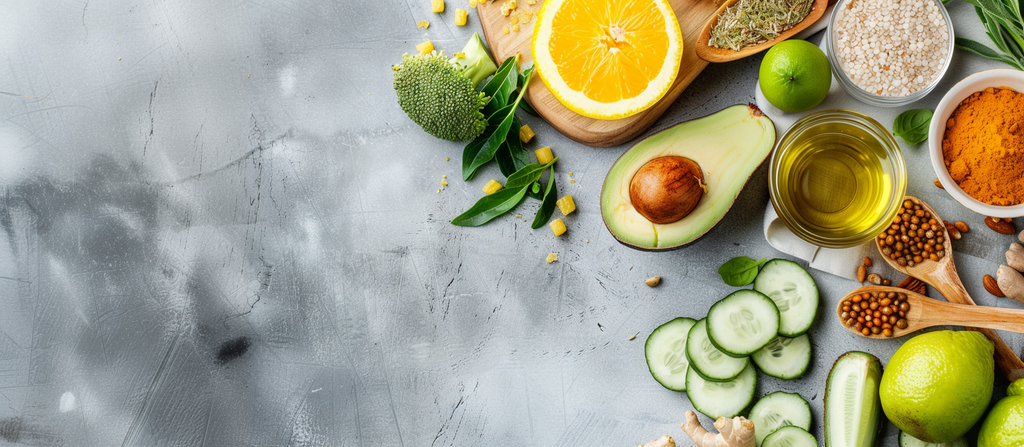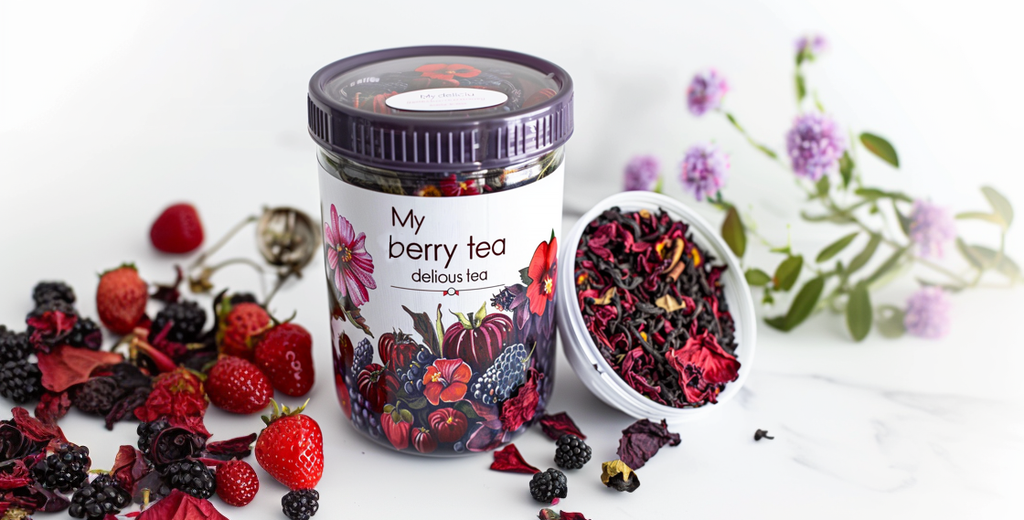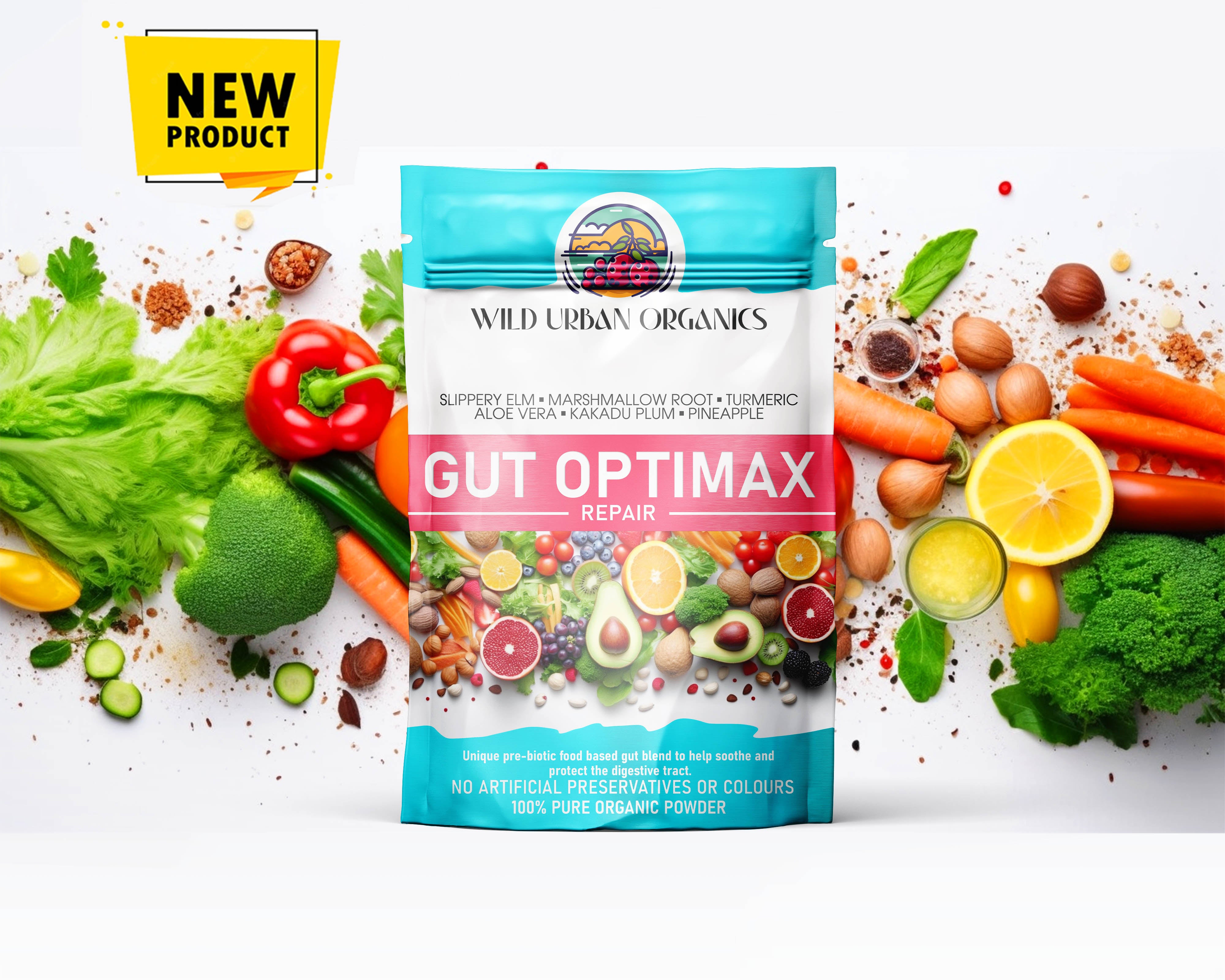Key Takeaways
| What is gut health? | Gut health refers to the balance and diversity of microorganisms living in your digestive system, also known as the gut microbiome. |
|---|---|
| Why is gut health important? | A healthy gut microbiome contributes to a strong immune system, better digestion, nutrient absorption, and potentially even mental well-being. |
| What are prebiotics and probiotics? | Prebiotics are dietary fibers that feed good gut bacteria, while probiotics are live bacteria that directly introduce beneficial strains into your gut. |
| How can I improve my gut health with diet? | You can support your gut microbiome by incorporating prebiotic-rich foods like fruits, vegetables, and whole grains, alongside probiotic foods like yogurt, kimchi, and kefir. |
| Best foods for gut health? | Fruits, vegetables, legumes, whole grains |

The Gut Microbiome: A Flourishing Ecosystem Within
Your gut is a complex ecosystem with trillions of microorganisms, collectively known as the gut microbiome. These microbes include bacteria, fungi, and viruses, and maintaining a healthy balance between them is crucial for overall well-being.
The Power of a Balanced Gut
A balanced gut microbiome plays a central role in various bodily functions. It aids in digestion and nutrient absorption, strengthens your immune system, and even influences your mood and mental health. When this delicate balance gets disrupted, it can lead to a cascade of digestive issues like bloating, gas, constipation, or diarrhea. It might also contribute to more chronic conditions like inflammatory bowel disease (IBD) or irritable bowel syndrome (IBS).
Prebiotics: Food for Your Gut Flora
Prebiotics are a type of dietary fiber that your body can't digest on its own. However, they act as a fertilizer for the good bacteria residing in your gut. Think of them as providing nourishment for these beneficial microbes, allowing them to thrive and keep the not-so-friendly ones in check.

Examples of Prebiotic-Rich Foods:
- Fruits: Apples, bananas, berries (especially blueberries)
- Vegetables: Artichokes, asparagus, onions, garlic
- Whole grains: Oats, brown rice, quinoa
- Legumes: Lentils, chickpeas, black beans
Probiotics: Introducing Beneficial Bacteria
Probiotics, on the other hand, are live bacteria that are similar to the good bacteria naturally present in your gut. Consuming probiotic foods or supplements can directly introduce these beneficial strains, further promoting a healthy gut environment.
Examples of Probiotic-Rich Foods:
- Yogurt with live and active cultures (look for the "Live Cultures" label)
- Kimchi (Korean fermented cabbage)
- Kefir (a fermented milk drink similar to yogurt)
- Sauerkraut (fermented cabbage)
-
Kombucha (a fermented tea beverage)

Strategic Implementation: Adding Prebiotics and Probiotics into Your Diet
Now that you understand the power of prebiotics and probiotics, let's explore how to incorporate them strategically into your daily meals:
-
Start Your Day with a Prebiotic Punch: Blend a handful of berries (prebiotic) with yogurt (probiotic) and spinach (prebiotic) for a gut-friendly smoothie.
-
Snack Smart: Pair apple slices (prebiotic) with almond butter (healthy fat) for a satisfying and gut-supportive snack.
-
Ferment Your Way to Health: Include fermented vegetables like kimchi or sauerkraut alongside your meals to reap the benefits of both prebiotics (from the vegetables) and probiotics (from the fermentation process).
-
Make Whole Grains a Staple: Opt for brown rice or quinoa (prebiotics) instead of white rice in your favorite dishes.
-
Don't Forget the Legumes: Add lentils or chickpeas (prebiotics) to soups, stews, or salads for a boost of fiber and prebiotic power.
Remember, consistency is key! Aim to incorporate prebiotic and probiotic elements into your meals throughout the day to experience the long-term benefits for your gut health.

Additional Tips for a Thriving Gut Microbiome
-
Manage Stress: Chronic stress can disrupt your gut balance. Practice relaxation techniques like yoga or meditation to promote gut health.
-
Prioritize Sleep: Aim for 7-8 hours of quality sleep each night. Sleep deprivation can negatively impact your gut microbiome.
- Stay Hydrated: Drinking plenty of water keeps your digestive system functioning optimally and supports the growth of good bacteria.
By implementing these dietary strategies and lifestyle modifications, you can empower your gut microbiome and unlock a path to better overall health and well-being.
Going Beyond the Basics: Optimizing Your Gut Health Strategy
While incorporating prebiotics and probiotics into your diet is a fantastic foundation for gut health, there's more you can do to fine-tune your strategy for optimal results.
Understanding Your Individual Needs
The gut microbiome is unique to each person, influenced by factors like genetics, diet, lifestyle, and even medications. What works wonders for one person might not have the same impact on another.
-
Consider a Food Intolerance Test: If you experience persistent digestive issues, a food intolerance test can help identify potential triggers that might be disrupting your gut balance. Eliminating these triggers can significantly improve your gut health.
- Consult a Naturopath: A naturopath can assess your individual needs and recommend a personalized plan to address any underlying imbalances in your gut microbiome. This might involve tailored dietary modifications, targeted supplementation, or other natural approaches.

Exploring Different Probiotic Strains
The world of probiotics is vast, with different strains offering unique benefits. Here's a glimpse into some popular options:
-
Lactobacillus Acidophilus: This strain supports overall gut health and aids in digestion, especially for lactose intolerance.
-
Bifidobacterium Bifidum: This strain is particularly beneficial for infants and young children, supporting their developing immune system.
-
Saccharomyces Boulardii: This beneficial yeast is known for its ability to combat diarrhea caused by antibiotic use or rotavirus infection.
Choosing the Right Probiotic Supplement
When selecting a probiotic supplement, look for one that contains a diverse blend of well-researched strains and offers a sufficient Colony Forming Units (CFU) count. CFU refers to the number of live bacteria per serving, and a higher CFU count generally translates to greater potential benefits.
Remember: It's always best to consult your doctor before starting any new supplements, including probiotics.
Fiber Powerhouses: Beyond the Usual Suspects
While fruits, vegetables, and whole grains are excellent sources of prebiotics, there are other hidden gems waiting to be explored:
-
Chicory Root: This fiber-rich root is a natural prebiotic that promotes the growth of good gut bacteria.
-
Jerusalem Artichokes: These knobby vegetables are another prebiotic powerhouse, known for their ability to support digestive health and potentially improve blood sugar control.
- Flaxseeds: Ground flaxseeds are a good source of both prebiotic fiber and omega-3 fatty acids, which contribute to overall gut health and inflammation management.
Building a Sustainable Gut-Healthy Lifestyle
Maintaining a healthy gut microbiome goes beyond just diet. Here are some additional lifestyle practices to consider:
-
Limit Added Sugars and Processed Foods: These can disrupt the balance of gut bacteria and promote the growth of harmful ones.
-
Engage in Regular Physical Activity: Exercise helps stimulate gut motility and promotes a healthy gut environment.
- Prioritize Mental Wellbeing: Chronic stress can negatively impact your gut health. Practice relaxation techniques and find healthy ways to manage stress.

Unleash the Power Within: Supercharge Your Gut Health with Food!
Do you ever feel sluggish, bloated, or just not quite yourself? It might be time to listen to your gut! Our gut microbiome, a complex ecosystem of trillions of bacteria, plays a crucial role in everything from digestion and immunity to mood and brain function.

Expert Insights: Naturopathic Perspectives on Prebiotics vs. Probiotics
In this informative guide, we'll explore the nuances of prebiotics and probiotics through the lens of naturopathic medicine. We'll unpack their unique functions, look at their gut health benefits, and provide insights on incorporating them into your diet.
By incorporating these additional strategies alongside your prebiotic and probiotic plan, you can create a gut-healthy lifestyle that promotes long-term well-being. Remember, a healthy gut is an investment in your overall health and happiness!


